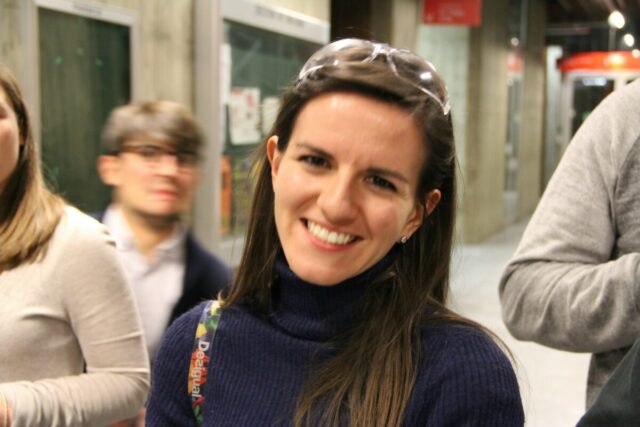Name: Marta Dal Molin
Current position: R&D Chemist
Place: DuPont, European Technical Center, Geneva
Field of work/Research topic: Formulation of engineering polymers
What was your position and research topic with the NCCR Chemical Biology?
During the collaboration with NCCR I was a postdoc at University of Geneva in the group of Prof. Stefan Matile. I worked on the development of fluorescence probes for the evaluation of membrane tension in cells.
What was your career path after leaving the NCCR Chemical Biology?
After the postdoc on 2015, I was hired at DuPont de Nemours, and American company working in the field of innovative materials. I started as an R&D chemist, working in the formulation of new engineering resins. I grew in this role and I am now responsible for the development of our polyacetal products for business located in Europe.
To what do you attribute the success of your career path?
I met for the first time a manager of DuPont in 2014, during a career day organized by the University of Geneva. We stayed in contact through LinkedIn for a while, and I contacted him once a position was available in the DuPont technical Center in Meyrin, Geneva. This connection helped me in being selected for the interview.
What was the best or more exciting moment of your career until now?
During my years at university I worked quite some time on the synthesis of a dithienothiophene based fluorophore, experiencing many failures and quite some frustration. I still remember the day I saw for the first time the clean NMR of my final product: all the worked paid off, finally!
What did you find unique about your collaboration with the NCCR Chemical Biology?
Thanks to the NCCR network my lab was able to explore the use of our fluorescent probes in different settings and applications, exploring the potentialities of this tool. The various meetings and retreats facilitated the generation of great ideas, in a stimulating high-profile scientific environment.
What are the skills/expertise acquired with the NCCR Chemical Biology that are useful to you today?
During my postdoc years in the Prof. Matile’s group I learnt the importance of hard work for delivering high quality scientific data: I am applying the same quality standards today during my work, and asking the same from my collaborators.
Do you have any advice to give to current NCCR members who are interested in your professional career?
Cultivate your network, stay curious on the big challenges and innovations in science, be open to positions that are not directly related to your specialization field. A high-level scientific background is highly valued by innovative industry nowadays: be ready to embrace new challenges.
Marta Dal Molin received her PhD in Organic Chemistry at the University of Padova, Italy, in 2012. She moved to Prof. Stefan Matile’s group for postdoctoral studies where she banned the way for the design and synthesis of the famously known ‘flipper’ probes inspired by her scuba diver idea. In 2015 she moved away from academia and started as a R&D chemist for Delrin® in DuPont de Nemours, Switzerland, where she currently already holds a patent. Her work is focused on the development of innovative solutions for automotive, healthcare and material handling in Europe, Middle East and America.



Leave a comment
The editors reserve the right not to publish comments or to abridge them.